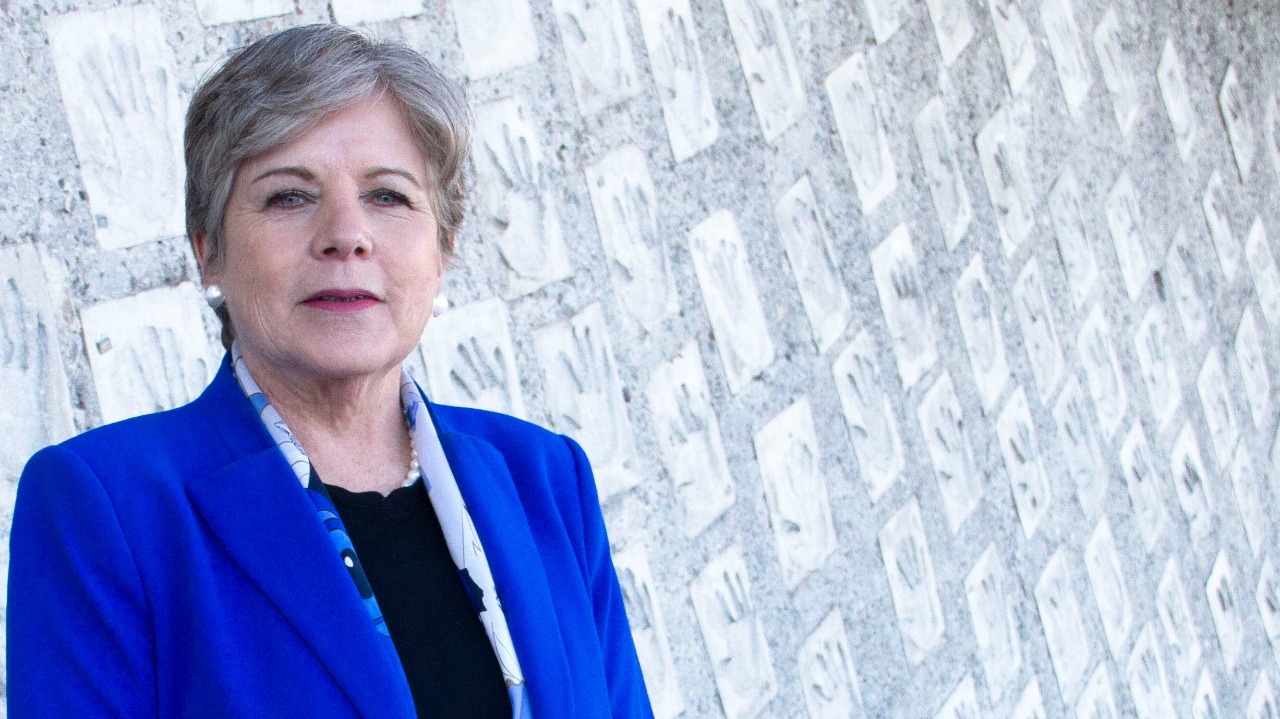ECLAC Presents Comprehensive Plan for Health Self-Sufficiency to Strengthen Capacities for Producing and Distributing Vaccines and Medicines in CELAC Countries
Work area(s)
Alicia Bárcena, Executive Secretary of the United Nations regional commission, participated today in the XXXI Meeting of National Coordinators of the Community of Latin American and Caribbean States (CELAC).

The Executive Secretary of the Economic Commission for Latin America and the Caribbean (ECLAC), Alicia Bárcena, presented today details of the Comprehensive Plan for Health Self-Sufficiency to strengthen capacities for producing and distributing vaccines and medicines in the countries belonging to the Community of Latin American and Caribbean States (CELAC).
In the framework of the XXXI Meeting of National Coordinators of CELAC, the UN regional commission’s highest authority addressed the situation of health care systems and the pharmaceutical industry in Latin America and the Caribbean, along with priority actions to be implemented to strengthen them.
The meeting, convened by Mexico in its capacity as President Pro Tempore of CELAC, was inaugurated by Efraín Guadarrama, that country’s National Coordinator before the regional integration mechanism. Participating as special guests were Cai Wei, Director-General of the Department of Latin American Affairs of the Foreign Ministry of China; Aleksandr Schetinin, Director of the Latin America Department and Special Representative of the Foreign Ministry of Russia for Cooperation with Latin America and the Caribbean; Javier Niño Pérez, Management Director for the Americas in the European Union’s European External Action Service; and Adrián Bonilla, Executive Director of the European Union-Latin America and the Caribbean (EU-LAC) Foundation.
Also participating were Julio Berdegué, Assistant Director-General and Regional Representative for Latin America and the Caribbean of the Food and Agriculture Organization of the United Nations (FAO); Luis Rosendo, External Consultant to the Secretariat of Foreign Affairs of Mexico; and Margarita Alcántara, Head of Office of the Undersecretariat for Multilateral Affairs and Human Rights of Mexico.
In her remarks, Alicia Bárcena warned that in Latin America and the Caribbean, health care systems are underfinanced, fragmented and segmented.
She noted that in the region, public spending on health is insufficient at 3.7% of GDP versus the 6% of GDP recommended by the Pan American Health Organization (PAHO), and out-of-pocket spending is high at 34%, which serves to segment health care services according to access, type and quality.
In addition, she explained, systems are fragmented between the public and private spheres, and also within the public sector, with weak integrated systems for monitoring and information. This is compounded by gaps in coverage and difficulties for purchasing medical supplies and procurement.
“It is urgently necessary to strengthen health care systems. We must prioritize primary care systems in terms of management and distribution of medicines and vaccines, and ensure the procurement of medical supplies and health sector regulations, with emphasis on public purchases,” ECLAC’s Executive Secretary affirmed.
She added that vaccination processes have been very heterogeneous among Latin American and Caribbean countries, adding that this depends not only on the distribution of COVID-19 vaccines – which has been unequal and slow – but also on the installed capacity of primary health care systems.
The senior United Nations official warned that the majority of the region’s countries have deficient preventive measures and that gaps persist in hospital systems, with insufficient critical care beds and trained personnel. She specified that in the region, on average there are 2 beds for every 1,000 inhabitants, in contrast to the average 4.8 beds in the countries belonging to the Organisation for Economic Co-operation and Development (OECD); and there are 20 doctors for every 10,000 inhabitants, versus 35 doctors in the OECD countries.
She also stated that the health-care manufacturing industry in the region is marked by a low level of technological development and high dependence on the production of multinational companies and imports from outside the region. In 2019, imports doubled the amount of its exports, with the deficit exceeding $20 billion dollars.
Alicia Bárcena highlighted the progress made by Cuba, Brazil and Mexico on developing their own vaccines, along with the production agreements reached by Argentina, Brazil, Mexico and Venezuela.
Finally, she called for consolidating a vaccine purchasing mechanism at a regional level and promoting a joint negotiation before the World Trade Organization (WTO) on issues of intellectual property, and for harmonizing regulatory standards, consolidating a regional platform for clinical trials, and strengthening regional public purchasing mechanisms in health care systems as an instrument of industrial policy.
She also called for developing regional suppliers with quality, safety and timeliness standards and adequate prices, for recuperating national systems for innovation and creating public and private regional consortiums, and for strengthening national primary health care systems to ensure equitable and universal access to medicines and services.
Type
Country(ies)
- Latin America and the Caribbean